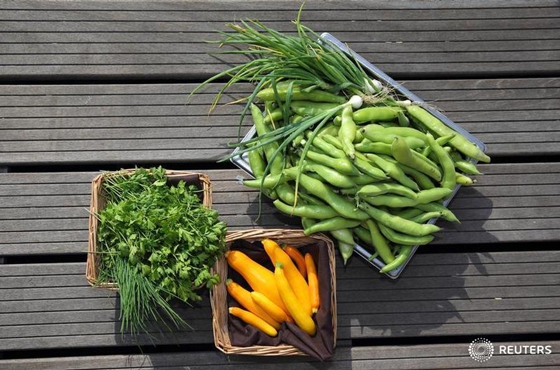Vegetables and fruit importers will have to submit a certificate indicating the maximum allowed percentage of pesticide content in all the consignments that enter Oman starting from May 21, according to the Ministry of Agriculture and Fisheries.
The rule was issued by Ministry of Agriculture and Fisheries in a circular sent to all agricultural quarantine departments at the nation’s border posts.
“Importers of food crops have to submit approved certificate from accredited departments of the exporting countries. Food products without the certificate will be rejected and not allowed to enter the country,” said the circular.
Importers also have been asked to comply with food safety standards.
Earlier this month, Muscat Municipality had directed all local farms to provide labels of their farms on all the vegetables and fruits sold in Oman. “It will then be easy to trace them if any problem arises,” said Muscat Municipality.
Starting from May 15, the United Arab Emirates banned specific Omani vegetables and fruits after discovering some of the products exceeded the maximum residue limits (MRL) of pesticides.
Pesticide levels in imported melons, watercress and carrots from Oman were found to be above the allowable limits.
The ban has resulted in losses of thousands of riyals for Omani fruit and vegetable vendors.
Dr Fuad Al Sajwani, Minister of Agriculture and Fisheries, said earlier that his ministry was dealing with the parties found to be in violation of the pesticide limits.
He said monitoring of such large export supplies was very challenging. “We export hundreds of tonnes of food products to the UAE on a daily basis. Such mistakes are likely to happen despite the fact that we always inspect products before exporting them,” the minister added.
“It is the social responsibility of Omanis to supervise the functioning of their farms, but many of them have entrusted their farms to expats,” he said.
The minister explained that there are more than 166,000 farms nationwide.
“It’s difficult to monitor all these farms, but we conduct random inspections. Last week, the Ministry of Agriculture and Fisheries said that it had increased its food inspections and that had helped them crack down on some culprits,” he affirmed.
“More than 1,600 samples taken from commercial farms nationwide were tested and we found that 98 per cent of the samples conform to internationally permissible limits of pesticides,” the ministry said in a statement.
The Ministry affirmed that more samples would be taken from commercial farms in the country at different stages of production to make sure that they also conform to the permissible limits regarding the pesticides.
An agreement between the UAE and Oman since 2010 stipulates that specific produce from Oman must come with a certificate indicating the amount of pesticide residue.
The measures had dramatically improved the safety of Oman’s export produce.
Oman’s agriculture sector was worth 0.9 per cent of GDP in 2016, according to the National Centre for Statistics and Information (NCSI).
Oman’s Vision 2020 has set a target of raising agriculture’s contribution to GDP to 3.1 per cent by 2020.
Gulf News
24 May

























































